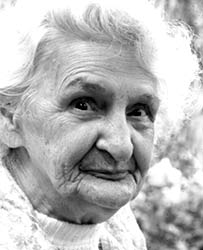|
|
Reports of Elder Abuse, Neglect Rise: Most Cases Thought To Be Unintentional
By Meg Heckman, Concord Monitor
August 5, 2005

Reports of abused or neglected elderly people are on the rise in New Hampshire, as healthcare workers, communities and families struggle to meet the needs of a rapidly aging population.
The state's Department of Health and Human Services has been tracking elder abuse for more than two decades. Bruises, burns or suddenly empty bank accounts are among the obvious signs of trouble, but officials say most cases are more subtle, involving unintentional neglect by well-meaning family or friends.
"Some of it is lack of understanding on the part of the caregivers," said Mary DeVeau, president and CEO of the Concord Regional Visiting Nursing Association. "We're seeing a much poorer elderly population, people are living longer . . . family doesn't live around them."
Last year, the state received 2,221 reports of mistreated adults, compared to 1,424 in 2000. Some of the victims are younger people with mental or physical disabilities, but the vast majority are frail, and often poor, men and women over the age of 65.
Officials say two things are driving the increase in reports: Police, nurses and social workers are better educated about the signs of abuse, and New Hampshire has a higher concentration of old people than ever before.
The nurses in DeVeau's agency often check on suspected cases of abuse.
While some elderly people are victims of crimes, most suffer from forgetfulness or depression that leads to poor hygiene, malnutrition or unsafe living conditions. Neighbors, firefighters and police officers often discover similar situations, but convincing a person to seek help isn't easy.
"I don't want to fall into the trap of stereotyping, but a lot of elderly folks are private, and they don't want to be a burden," said Concord Police Chief Jerry Madden. "That independence at times can be their own undoing. . . . I think we all want to feel that we can remain as independent as possible."
Concord doesn't keep statistics on elder abuse, but Madden says his officers are learning that it's a problem that often transcends crime. "The physical stuff is easy," he said. "But it's the more subtle things that are a lot harder to pinpoint."
To help, the health department recently formed a group of social workers, lawmakers and nurses who will spend the next year crafting a plan to prevent elder abuse from growing along with the over-65 population. The tasks include the simple, such as ordering wallet-sized cards listing the signs of abuse to the complicated, like stiffening legal penalties for crimes against the elderly or disabled.
"We do want more people to stay in the home, to stay in the community," said Jo Moncher, who's in charge of community relations for the state's division of community-based care services. "But we need to take care of the folks who stay in the community."
|
|



